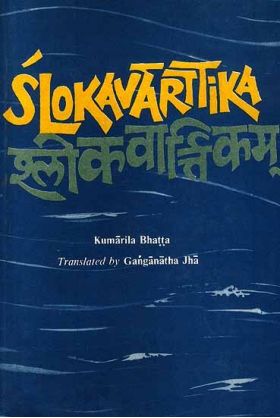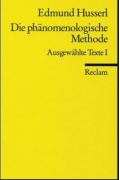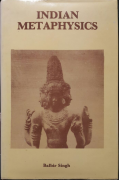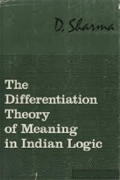The English translation of the Mimamsa-Slokavarttika, the magnum opus of Kumarila Bhatta was prepared by Dr. Ganganatha Jha and published by the Asiatic Society during 1900-1908. The work was long out of print. But the demand for the same persisted. The Society in its bicentenary year decided to issue a reprint of the same as a mark of respect to the learned translator who utilised both the Kasika of Sucaritamisra and the Nyayaratnakara of Parthasarathi Misra, which ascertain the view of Kumarila.
Here is the content of the first two sutras
| Sutra I. | ||
| Subject-matter of the Treatise | 1-20 | |
| Introduction (1) | 1 | |
| Purpose of the Mimansa ? Castra (11) | 2 | |
| Connection of the Castra (19) | 3 | |
| Various interpretations of the opening passage of the Bhashya (26) | 4 | |
| First Interpretation: Universal Explanation (28) | 4 | |
| Second Interpretation: Censure (33) | 5 | |
| Third Interpretation: Disavowal (37) | 5 | |
| Fourth Interpretation: Specification (46-47) | 7 | |
| Fifth Interpretation: Praise (59) | 10 | |
| Sixth Interpretation: Objection to the use of the word 'atha' (60) | 10 | |
| Meaning of the word 'atha' ? Sequence (61) | 10 | |
| What is implied by this Sequence: Study of the Veda (69-70) | 11 | |
| Other significations of the Sutra (78-82) | 13 | |
| Preclusion of Studies other than that of the Veda (82) | 13 | |
| Negation of the Bath before Investigation of Dharma (87-88) | 14 | |
| Signification of the Bath (100-101) | 17 | |
| Signification of the Bath word 'atah' (110) | 18 | |
| Meaning of the word 'Dharmajijnasa (115-17) | 18 | |
| The Usefulness of Investigation of Dharma (122) | 19 | |
| Sutra II. | ||
| Definition of Dharma | 21-66 | |
| Authority or Means of knowing Dharma (1) | 21 | |
| Meaning of the word 'Codana' (3) | 21 | |
| Duplicate implication of the Sutra (3) | 22 | |
| Authoritativeness of Word (5) | 22 | |
| 'Codana' = Word (7) | 22 | |
| Significations of the word 'lakshana' (9-10) | 22 | |
| The Character of Dharma lies not in the Sacrifice itself, but in its capacity of bringing about auspicious results (13) | 23 | |
| Preclusion of all other Means of knowledge from the case of Dharma (16) | 24 | |
| Authority of the Veda questioned (21) | 24 | |
| Self-evident character of the Veda: Does authoritativeness lie in the conception itself, or is it extraneous? (33) | 26 | |
| The theory of the extraneous characters of authoritativeness (38) | 27 | |
| The theory refuted (47) | 28 | |
| Notion of un-authoritativeness due to extraneous influences (53) | 29 | |
| Three forms of un-authoritativeness (54) | 29 | |
| Excellences of the source of words only serve to set aside the chances of un-authoritativeness (65-66) | 31 | |
| Absence of an Author safeguards the Veda against all reproach (68) | 31 | |
| Only human assertions dependent upon other Pramanas (71) | 32 | |
| The authoritativeness of Pramanas does not lie in their compatiblity with one another (73) | 32 | |
| The falsity of a Conception explained (86) | 33 | |
| Inference not applicable to Veda (89) | 34 | |
| Undisputed authority of the Veda (95-96) | 35 | |
| Veda not due to human origin (97-98) | 35 | |
| Falsity due to non-productiveness of conception (101-102) | 36 | |
| 'Pratyayita' explained (102-103) | 36 | |
| Force of the word 'Va' (109-10) | 37 | |
| No omniscient person (111) | 38 | |
| Inference and Sense-perception not applicable to objects in the future (115) | 38 | |
| Veda not the work of an Omniscient Author (120) | 39 | |
| Scriptures composed by human beings not fully authoritative (122) | 39 | |
| No grounds for assuming the existence of an omniscient person (132) | 41 | |
| The character of the Veda itself does not lend support to the theory an Omniscient Author (149) | 43 | |
| Absurdity incurred in denying the authority of the Veda (154) | 43 | |
| The sentence 'Nanvavidusham,' explained (155) | 44 | |
| The Buddhistic Scriptures false, because composed by human beings (169) | 46 | |
| The sentence 'Nanu samanyatodrshtam explained (174-75) | 46 | |
| The sentence 'Na, anyatwat' explained (175) | 47 | |
| The sentence 'Na hi anyasya, explained (181-82) | 48 | |
| Arguments in support of the authenticity of the Veda (184) | 48 | |
| 'Pratyakshastu, explained (187) | 49 | |
| Full signification of the word 'Dharma' (190) | 49 | |
| Other meanings refuted (195-96) | 50 | |
| No Apurva apart from a potentiality of the Sacrifice (197) | 51 | |
| Objections based upon the significance of the word 'Codana' (201) | 51 | |
| Reply to these: Codana cannot be restricted to positive activity only (200) | 53 | |
| Codana refers to Injunctions as well as Prohibitions (215-16) | 54 | |
| Two kinds of consequences following from Sacrifices (221-22) | 54 | |
| Action not prohibited cannot be sinful (232-33) | 57 | |
| Result not always similar to the Action (235-36) | 57 | |
| Vedic Injunctions and Prohibitions the only means of knowing Dharma and Adharma (242-43) | 59 | |
| Utilitarian theory of Virtue not tenable (246-47) | 59 | |
| Nor the 'Conscience' theory (247-48) | 59 | |
| Sacrificial Slaughter not sinful (259) | 61 | |
| 'Cyena' sacrifice sinful, because resulting in the death of a person (267) | 62 | |
| Interpretation of the Sutra justified (277-78) | 64 |
Translator:
- Jha, Ganganatha.
Cover:
- Hardcover
- Dust jacket
No posts found








